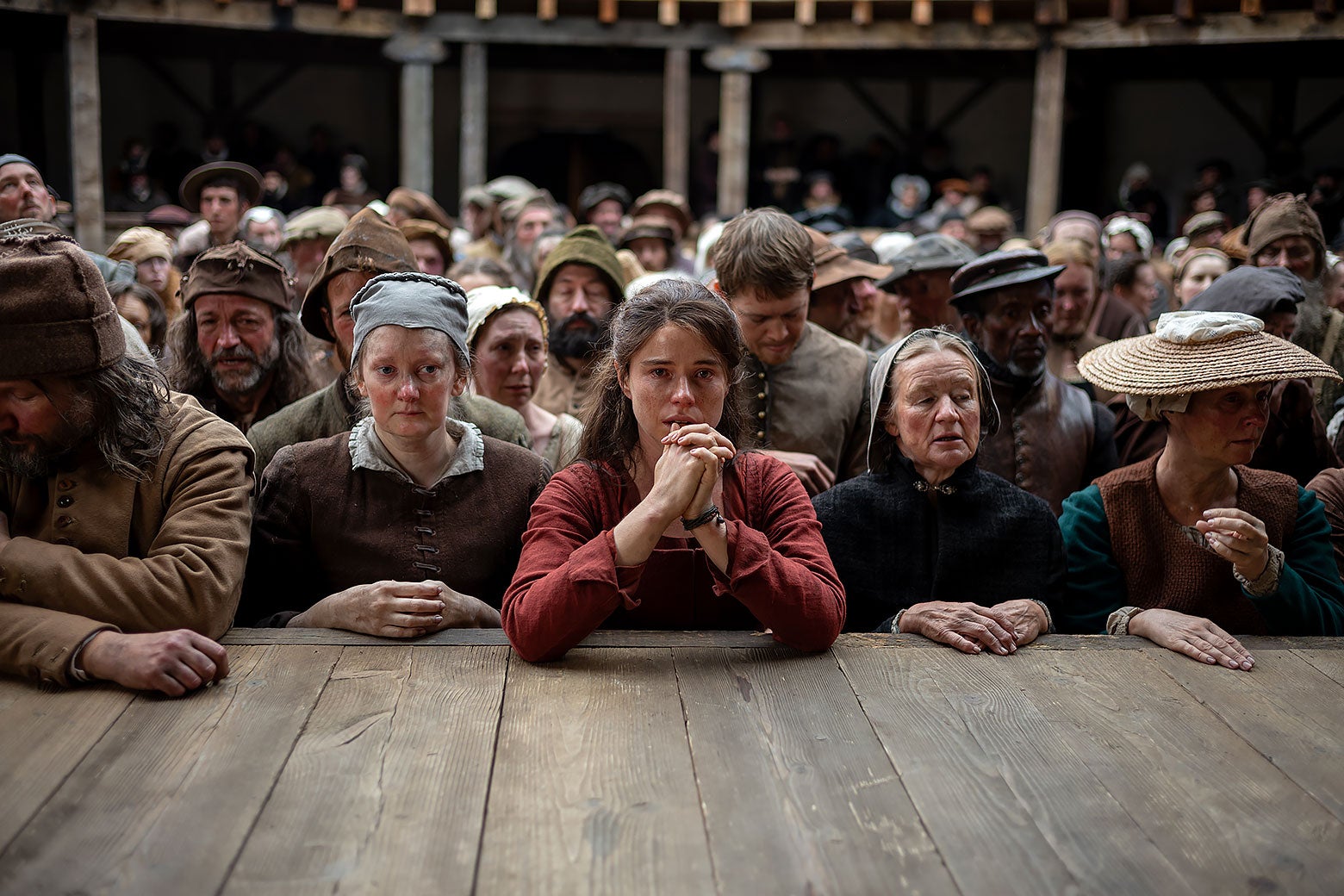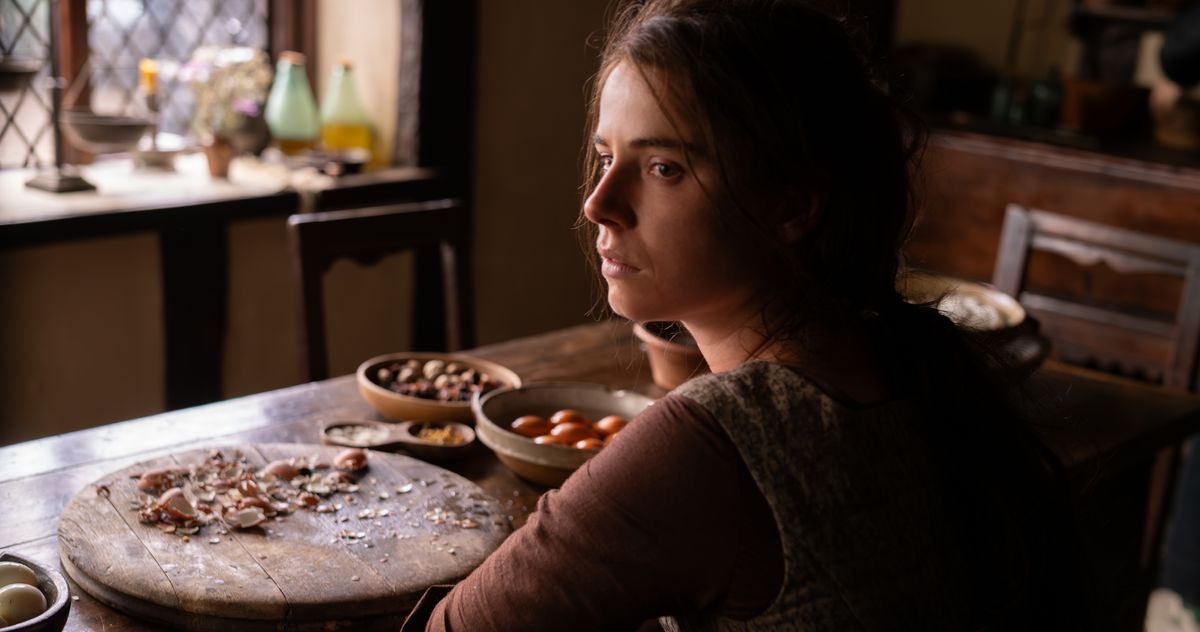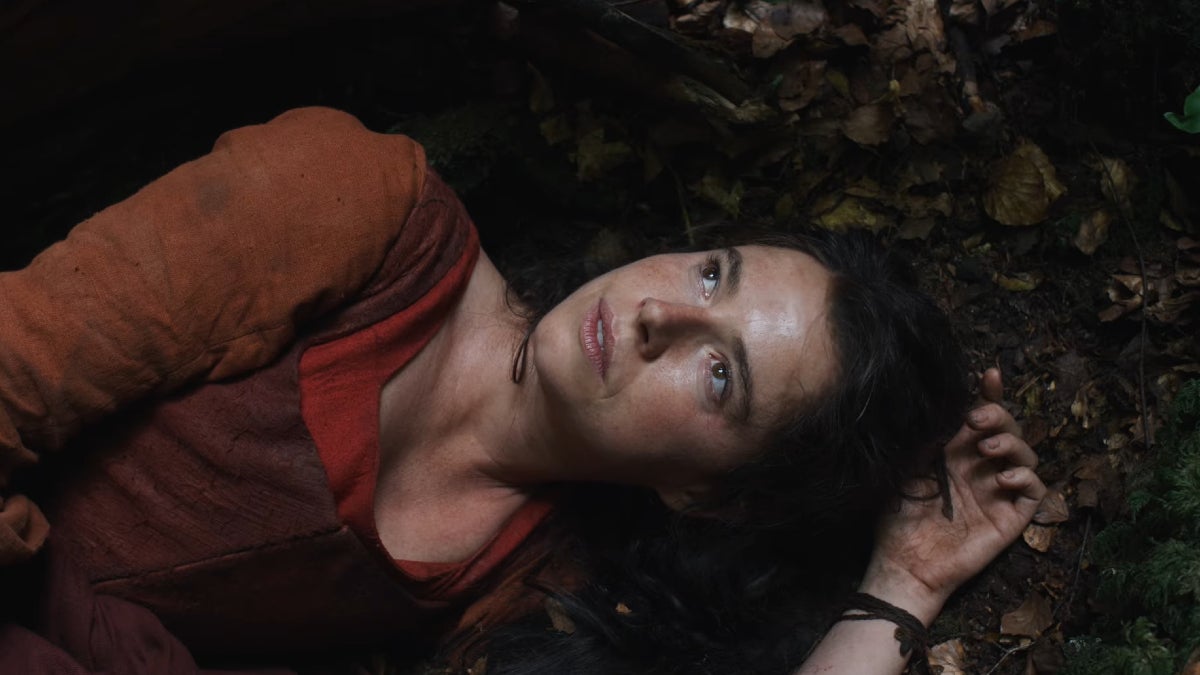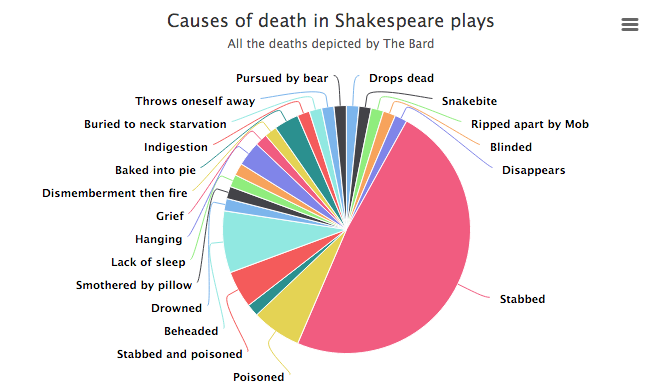#Shakespeare
#Shakespeare
[ follow ]
#theater #hamnet #theatre #free-performance #hamlet #grief #community-event #community-events #film-adaptation
Education
fromOregon ArtsWatch * Arts & Culture News
1 week agoAll the world's a stage: Oregon Shakespeare Festival's educational outreach programs bring the bard to life * Oregon ArtsWatch
The Oregon Shakespeare Festival's School Visit Program brings short, interactive Shakespeare performances and workshops to remote schools, creating firsthand theatrical experiences and building audiences.
Arts
fromwww.theguardian.com
1 month agoMelancholy magic': how Judi Dench and a host of stars came under the spell of the greatest comedy in history
Veteran actors fondly recall formative experiences with Twelfth Night, revealing personal connections, comic inventions, and the play's enduring structural brilliance.
Books
fromwww.theguardian.com
2 months agoHamnet by Maggie O'Farrell audiobook review the life and loss of the woman behind the Bard
Hamnet centers on Agnes Hathaway's grief and a family's undoing after son Hamnet's death, combining lyrical, immersive narrative, historical detail and sensitive narration.
fromwww.theguardian.com
2 months agoEverything about Paul Mescal is irresistible with one exception | Adrian Chiles
Not so much for the carnal stuff, but for the way every word he utters is taken to be as beautiful as he is. Intoxicated by their admiration, his admirers leap headfirst into the still waters of his pronouncements apparently certain of hidden depths thereunder. So it has been with the reaction to how he comforted his director when she confessed, in so many words, that she couldn't always grasp what Shakespeare was on about.
Arts
fromEarth911
2 months agoEarth911 Inspiration: As You Like Nature
This week's quote comes from Duke Senior's speech in Shakespeare's As You Like It, Act 2, Scene 1. Let's enjoy the hidden experience that attentive time in nature reveals. It can unlock wonder, awe, and insight. "And this our life, exempt from public haunt, Finds tongues in trees, books in the running brooks, Sermons in stones, and good in everything."
Environment
Film
fromwww.theguardian.com
2 months agoJudi Dench says she can't remember what I'm doing tomorrow' but can still recite Shakespeare
Judi Dench, approaching 91, has worsening age-related macular degeneration and short-term memory issues yet still recalls extensive Shakespeare and continues selective public appearances.
Film
fromIndieWire
3 months agoChloe Zhao Knows How to Make You Cry: The 'Hamnet' Director Digs Deep on Her Surefire Oscar Contender
Hamnet is a heart-wrenching period family drama about William and Agnes Shakespeare grieving the loss of their son, eliciting strong emotional reactions at festival screenings.
fromThe New Yorker
3 months ago"Hamnet" Feels Elemental, but Is It Just Highly Effective Grief Porn?
The Hathaways are farmers, in the English county of Warwickshire, with close ties to the land-some would say too close, at least in the case of Agnes, a young woman so eccentrically at one with nature that she is rumored to have been born of a forest witch. The Shakespeares are led by a glover, whose business has seen better days. His eldest son-William, of course, though he is not immediately identified as such-defrays his father's debts by tutoring Agnes's younger brothers in Latin,
Film
fromTime Out New York
3 months agoMichael Urie talks about acting gay, being funny and starring in Richard II
My last week in overlapped with the first week of rehearsals for . I've done that before, but I'm 45 now, and it's harder than it was even two years ago when I did it for . And that was really hard: two musicals. So I'm a little tired. But it's good. This bounty of work is something I've always been trying to get; being able to go between varying roles was the dream when I was getting out of school.
Arts
fromThe Atlantic
3 months agoThe Stubborn Myth of the Literary Genius
If you close your eyes and picture an artistic genius, chances are that the portrait will be framed by a Romantic ideal that took shape 200 years ago: an artist dedicated solely to his (almost always his) muse and transgressive appetites, breaking his era's rules both moral and artistic, remaking society with his art. But this vision of genius is a poor fit for many great artists, and it tends to obscure what makes them and their work special.
Books
fromwww.theguardian.com
5 months agoHamnet review stately Shakespeare drama with emotionally overwhelming finale
Maggie O'Farrell's lauded 2020 novel Hamnet is a dense and lyrical imagining of the lives of William Shakespeare's family, full of interior thought and lush descriptions of the physical world. It would seem, upon reading, near impossible to adapt into a film. Or, at least, a film worthy of O'Farrell's so finely woven sensory spell. Film-maker Chloe Zhao has attempted to do so anyway, and the result is a stately, occasionally lugubrious drama whose closing minutes are among the most poignant in recent memory.
Film
Books
fromPinkNews | Latest lesbian, gay, bi and trans news | LGBTQ+ news
5 months agoDoes this portrait really show Shakespeare's 'secret gay lover'? We asked an expert
A 16th-century miniature of Henry Wriothesley may have been a love token suggesting a possible romantic relationship with William Shakespeare, though evidence remains inconclusive.
[ Load more ]
























